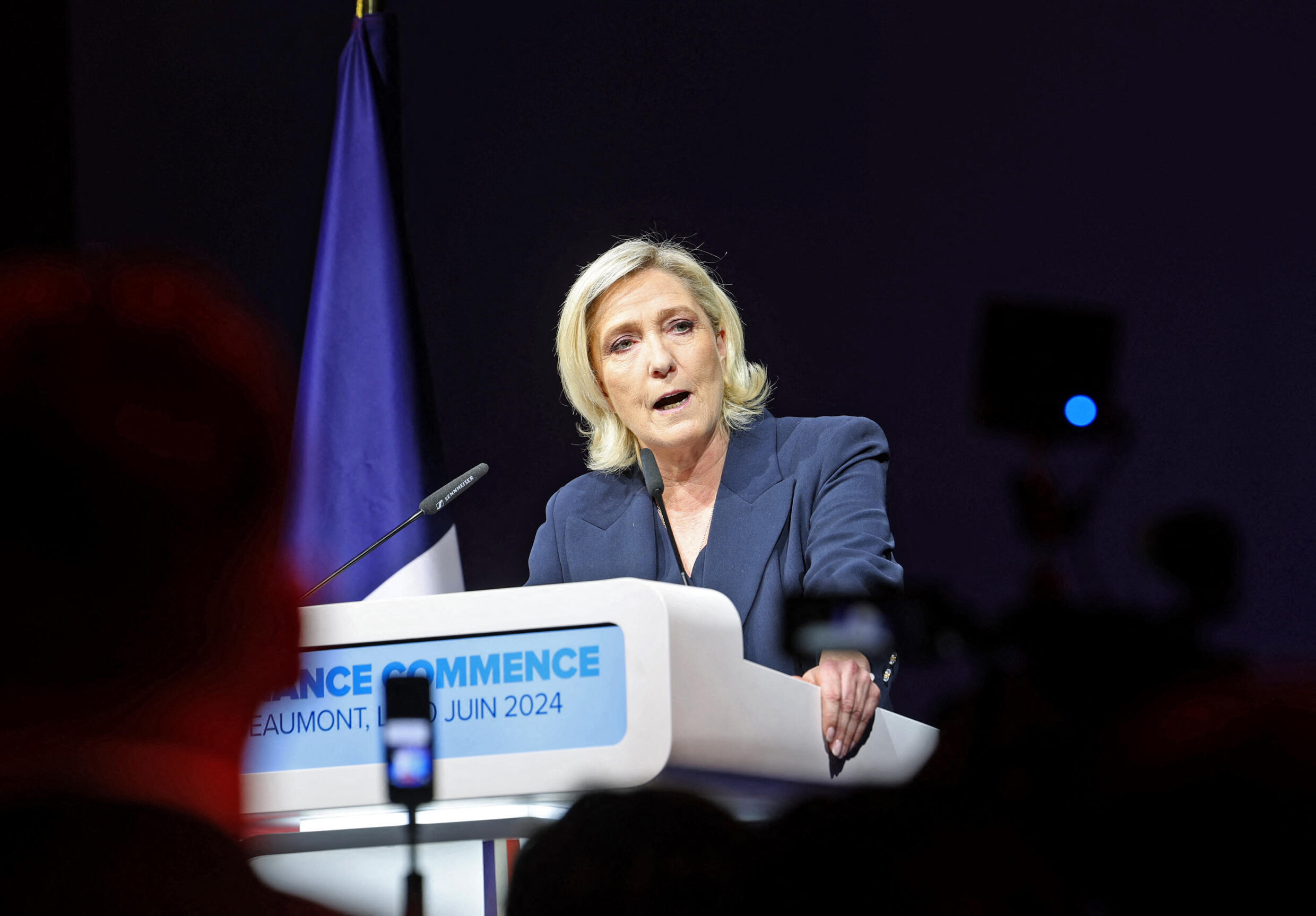Marine Le Pen’s anti-immigrant National Rally led a first round of voting on Sunday in exceptionally high-stakes elections that could put France’s government in the hands of a far-right party for the first time since World War II.
President Emmanuel Macron’s ruling coalition was beaten into third place by a fledgling alliance of the left as the incumbent’s gamble with a snap election backfired spectacularly.
Three weeks after trouncing its rivals in low-turnout European polls, Le Pen’s National Rally (RN) confirmed its status as France’s leading political force in a first round of legislative elections marked by the highest turnout in three decades.
Le Pen’s camp secured a clear victory, albeit not a decisive one, meaning the vote’s ultimate outcome remains uncertain ahead of a second round of voting on July 7. Macron, whose decision to call the snap election had stunned friends and foes alike, has urged voters to rally against the far right next Sunday.
RN and its allies on the right took 33.2 percent of the vote, ahead of the left-wing New Popular Front (NFP) on 28.1 percent, according to projections by pollsters Ipsos-Talan. Macron’s Ensemble alliance trailed in third place with 21 percent, followed by the conservative Les Républicains and their partners on 10 percent.
Based on those figures, the far-right camp would go on to win between 230 and 280 seats in the National Assembly, the pollsters added, leaving it short of the 289 seats required to win an absolute majority.
The two rounds of voting and a record number of three-way runoff races mean such predictions are extremely difficult, and the final result will depend on days of frantic horse-trading as parties work to make alliances in some constituencies or pull out of others.
Speaking as the first projections trickled in, Le Pen called on voters to push her party over the line and give it an “absolute majority” of seats in the lower house of parliament, which wields greater powers than the Senate.
In such a scenario, Macron would be expected to name the party’s 28-year-old poster boy Jordan Bardella as prime minister in an awkward power-sharing system, known as “cohabitation”, that would weaken him both at home and on the world stage.
Victory for RN would lead to France’s first far-right government since the Nazi-allied Vichy Regime – capping an extraordinary turnaround for an extremist party that was co-founded by Le Pen’s father Jean-Marie, a Vichy supporter and convicted anti-Semite.
A more likely outcome would be a hung parliament in which no coalition is able to muster a majority, bringing gridlock to the European Union’s second-largest economy and its leading military power.
Sunday’s vote follows a chaotic and volatile three-week campaign – the shortest in modern French history – that saw Macron warn voters of a threat of “civil war” should they choose either of his main rivals.
Estimated at over 65 percent, turnout was the highest for a parliamentary vote since former president Jacques Chirac called France’s last snap election in 1997 – and suffered an equally catastrophic backlash.
Macron’s startling move to dissolve the lower house of parliament came on the heels of European parliamentary polls that saw Le Pen’s National Rally trounce the ruling party.
The president took the momentous decision against the advice of senior allies, the heads of France’s two chambers of parliament and his prime minister, who were informed of his decision at the 11th hour and were powerless to change his mind.
One thing is certain: Macron’s “clarification” has clarified that French voters no longer want him to govern alone.
Since the president’s audacious gamble, a quote by former conservative minister Patrick Devedjian has been doing the rounds on social media. It referred to Chirac’s ill-fated snap election in 1997 but could just as well apply to Macron.
“We were holed up in an apartment with a gas leak,” the late Devedjian quipped. “That’s when Chirac lit a match to see what was going on.














